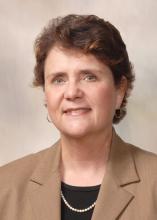Information Possibly Outdated
The information presented on this page was originally released on April 16, 2014. It may not be outdated, but please search our site for more current information. If you plan to quote or reference this information in a publication, please check with the Extension specialist or author before proceeding.
MSU Extension returns to sewing instruction
MISSISSIPPI STATE -- The Mississippi State University Extension Service is tuning up its sewing machines as the requests for sewing classes stack up.
“Everything old is new again,” said Sylvia Clark, family and consumer sciences Extension associate. “There is a renewed interest in sewing, in making clothes and items for the home that reflect a personal sense of style and save money.”
Most schools in Mississippi, like those in many other states, no longer offer sewing classes.
“Sewing used to be something everyone’s grandmother did, and many of our Mississippi Homemaker Volunteers still do sewing projects, but now we’re seeing a lot of young people and adults who want to learn how to sew,” Clark said. “4-H has always had a sewing project available, but interest in sewing skills is really increasing across a wide variety of age groups.”
The Mississippi Homemaker Volunteers are women who meet in community groups and share an interest in strengthening families through educational activities and volunteer projects.
Wanda Cheek was recently hired as a part-time Extension instructor in clothing and textiles, following her retirement from the MSU School of Human Sciences. Her job is to conduct a Basic Sewing 101 workshop for county Extension agents, who will then offer sewing classes in the community.
These agents will also work to build local groups of Master Clothing Volunteers, who are trained to lead county programs that teach sewing, clothing care and construction, and home decor.
“Extension is about addressing community needs, including strengthening families,” Cheek said. “I view basic sewing as a lifelong skill.”
Part of the reason for the renewed interest in sewing is that more people are identifying with “slow” living and homesteading skills, ranging from growing their own food to making their own clothes, Cheek said.
Extension programs, such as 4-H, are some of the few remaining outlet where youth and adults can enter clothing competitions to learn and receive recognition, she said.
“Something as simple as learning to sew on a button or repair a hem has been lost to generations,” she said. “Interestingly, I am learning that other states are realizing this same need and have started to address sewing education.”
The Master Clothing Volunteer program supports the growing demand for sewing-related workshops in Mississippi communities.
“I would love to have at least one Master Clothing Volunteer in each county, to help with county Extension programs,” Clark said. “Being a Master Clothing Volunteer is more than simply being an excellent seamstress. We’re looking for people who have the ability to teach others, to be patient as children learn and to communicate well.”
For more information on the Master Clothing Volunteer program, contact Clark at 662-325-1696 or visit http://bit.ly/1m7ANAx. The Master Clothing Volunteer state conference will be Aug. 6-8 at the Lake Tiak-O’Khata conference facility in Louisville.



